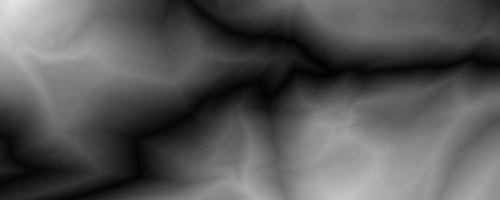
a seed based noise generator is meant to create a pseudo random pattern. it looks like a perlinNoise… well the best is to check it out.
It all started with pixelero(a must-syndicate) and especially with those 2 great articles:
- http://pixelero.wordpress.com/2008/03/11/simple-3d-effect-by-using-blendmodelighten/
- http://pixelero.wordpress.com/2008/03/04/metaballs-actionscript-30/
there are a couple of breathtaking uses of this principle:
the big thing explained by pixelero is that you only have to use a blendmode.DIFFERENCE on a bunch of balls and OMG: it’s beautiful.
I first tried it with a clump of balls which I positionned Math.randomly on the stage it became quickly very beautiful and very complex. The only problem I found was that the Math.random() was sometimes not lucky… it would create non-homogenous pattern, and one would need hundreds of balls to cover the screen surface.
Then I thought about the perlinNoise which takes a seed and builds a pattern that can be ‘foreseen’ or at least reproduced if you enter the very same params.
By the way, during the 25 lines contest, there were a lot of guys posting comments amongst which many high level flashers.
That’s where I found this article: Oaxoa’s Blog you might want to check it carefully for it’s another way to create complex noises in a much faster way for it uses only built-in bitmapdata methods.
So I looked for a Pseudo Random Number Generator.
Fortunately, a couple of people had already done the job amongst which (and before all) POLYGONAL. Of course, he did a great job and I have to admit that I couldn’t get it all.
hence in his article he gives great explanations and pretty useful links like this one.
Even though I still can’t get it, I mangaed to implement the Carta algorithm.
To make a long story short, you give it a seed and a multiplier and the algorithm will spit a series of pseudo random numbers.
here’s a demo:
 FlashDevelop
FlashDevelop HAXE
HAXE
my beloved readers wrote…